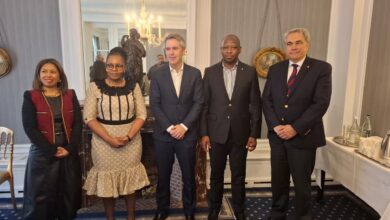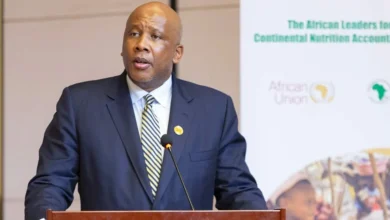UN Expert Urges Lesotho to Remove Barriers for Persons with Albinism

A UN expert has called on the Lesotho authorities to prioritize the removal of barriers hindering the enjoyment of rights by persons with albinism, emphasizing that this would significantly enhance their quality of life. Muluka-Anne Miti-Drummond, the Independent Expert on albinism, made this appeal at the conclusion of a 10-day visit to the country.
“Concrete measures focused on the specific needs of persons with albinism can have far-reaching impacts, including on quality of life and life expectancy,” Miti-Drummond stated. She highlighted the serious barriers faced by persons with albinism, such as stigma, discrimination, lack of access to healthcare, education, and employment, which collectively contribute to poverty.
Persons with albinism in Lesotho endure significant challenges due to color and visual impairments. They often lack access to essential healthcare services, including sunscreen and visual aids, which are crucial for preventing skin cancer and aiding vision. Additionally, barriers to education and employment opportunities further exacerbate their plight.
“Many measures to address these barriers are relatively achievable and inexpensive to implement,” Miti-Drummond explained. She suggested that providing sunscreen through the public health system, offering reasonable accommodation in schools and workplaces, and launching robust nationwide campaigns to educate the public about albinism could vastly improve the lives of those affected. These measures, she argued, are more affordable and practical compared to treating skin cancer or addressing the long-term consequences of exclusion and discrimination.
Despite hearing some encouraging testimonies, Miti-Drummond noted numerous instances of bullying, microaggressions, othering, and emotional trauma experienced by individuals with albinism. She recounted meeting people who, despite being accepted and loved, still faced significant challenges. In contrast, others were segregated within their own homes or had been abandoned by their families.
In rural areas, the challenges are even more pronounced. In one of the most remote areas of Thaba-Tseka, some people with albinism are not accepted in their communities and have never heard of sunscreen or visited a healthcare facility. Miti-Drummond shared the story of a young pregnant woman with albinism who had to walk for two hours through mountainous terrain to access maternal care at the nearest hospital.
“We need to step up efforts to support, equip, and empower persons with albinism. Political will and strong coordination among stakeholders are crucial,” Miti-Drummond urged. She emphasized the importance of social protection programs recognizing persons with albinism, who often face additional challenges due to visual impairments and susceptibility to skin cancer, when assessing eligibility for financial support and grants.
Inclusion of sunscreen in the national Essential Medicines List and subsidizing visual aids can alleviate some of the hardships faced by persons with albinism. Miti-Drummond also warned against complacency, noting that the absence of attacks should not diminish efforts to address their needs.
Miti-Drummond advocated for a multi-sectoral approach to effectively tackle existing challenges and urged all actors, including traditional leaders and community members, to collaborate. She expressed gratitude to the Lesotho authorities for their invitation and cooperation during her visit and announced that she will present her report to the Human Rights Council in March 2025.




